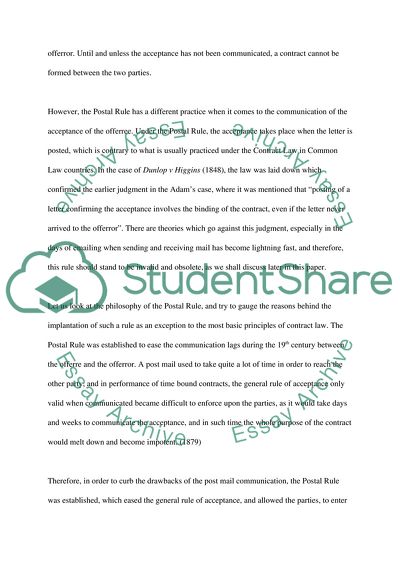Cite this document
(“Contract Law: Postal Rule Term Paper Example | Topics and Well Written Essays - 2500 words - 1”, n.d.)
Contract Law: Postal Rule Term Paper Example | Topics and Well Written Essays - 2500 words - 1. Retrieved from https://studentshare.org/law/1747739-contract-law-assessed-coursework
Contract Law: Postal Rule Term Paper Example | Topics and Well Written Essays - 2500 words - 1. Retrieved from https://studentshare.org/law/1747739-contract-law-assessed-coursework
(Contract Law: Postal Rule Term Paper Example | Topics and Well Written Essays - 2500 Words - 1)
Contract Law: Postal Rule Term Paper Example | Topics and Well Written Essays - 2500 Words - 1. https://studentshare.org/law/1747739-contract-law-assessed-coursework.
Contract Law: Postal Rule Term Paper Example | Topics and Well Written Essays - 2500 Words - 1. https://studentshare.org/law/1747739-contract-law-assessed-coursework.
“Contract Law: Postal Rule Term Paper Example | Topics and Well Written Essays - 2500 Words - 1”, n.d. https://studentshare.org/law/1747739-contract-law-assessed-coursework.


